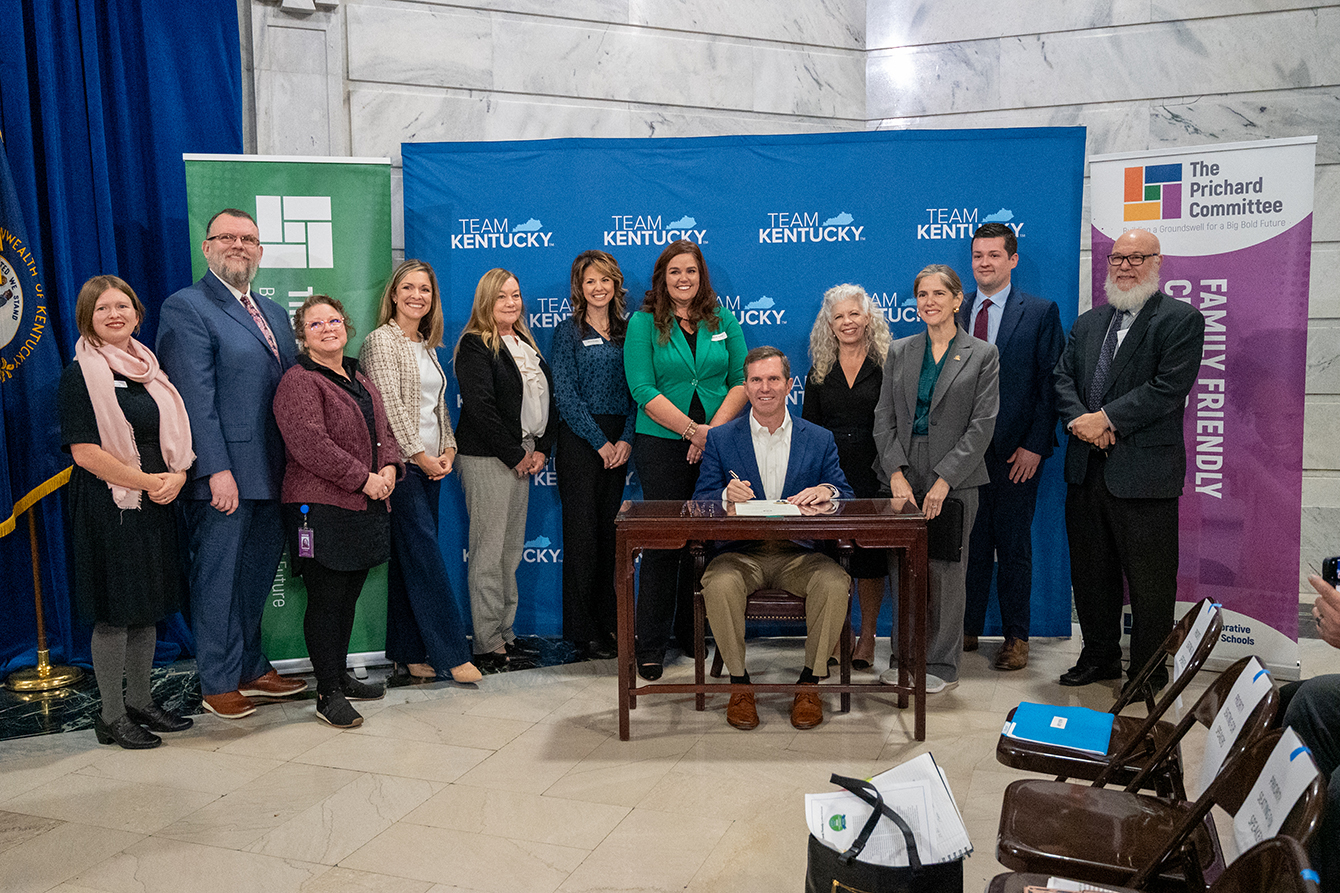
The Kentucky Department of Education (KDE) continues to build on Kentucky’s top-tier internet infrastructure, partnering with Education Networks of America (ENA) by Zayo to modernize and upgrade internet connectivity within Kentucky’s 171 school districts, the Kentucky School for the Deaf, the Kentucky School for the Blind, Kentucky’s 50 area technology centers and the KDE office in Frankfort.
David Couch, associate commissioner in the KDE Office of Education Technology, said Kentucky was already a leader in K-12 internet capabilities, being the first state to connect every public school to the internet in 1995. The new partnership with ENA by Zayo will keep the same high-quality service in place that Kentucky schools have come to expect, with ENA by Zayo providing bandwidth services with at least 75% more capacity for the same price as KDE’s prior service, said Couch.
“Kentucky K-12 education is unique in that no other state requires cloud-based computing for educational, administrative and communication purposes of the internet network like ours,” said Couch. “The additional bandwidth is a game changer since we use standardized cloud-based services for several critical technology functions across Kentucky’s schools, district offices and the KDE office in Frankfort.”
Through this collaboration, KDE will meet the national goal of 1 Mbps of internet bandwidth per K-12 student set by the Federal Communications Commission (FCC). Previously, Kentucky was the first state to reach the FCC national goal of 100 Kbps internet speeds per K-12 student in 2015.
“For decades, all Kentucky schools have been connected to the internet with the best possible infrastructure, and we will continue improving to make these services better for our students,” said Commissioner of Education Robbie Fletcher.
Proactively ensuring its internet service is secure and capable allows KDE to maximize future state and federal funding opportunities, enabling the department to continue bridging educational gaps, Couch said.
Couch also noted the transition from one internet provider to another in every district only took 10 months.
“Typically, it takes many years to do this type of thing with this much quality,” Couch said. “Doing all this in just 10 months is just amazing and very noteworthy.”
The increased fibered internet bandwidth ensures K-12 students and educators benefit from reliable, high-quality connectivity to enhance learning, improve operational efficiencies and offer access to more online educational tools. The improved infrastructure also will provide KDE facilities with enhanced cybersecurity and reporting capabilities, safeguarding critical internet services and protecting student data.
Cybersecurity is a critical issue for schools across the country, including Kentucky. Couch said Kentucky schools are hit with 137 billion cyberattack attempts annually, a figure more than 30 times as large as it was pre-pandemic. ENA by Zayo has the resources and scale to deal with the volume of attacks facing KDE’s districts, including advanced firewalls and protections against attacks.
Couch said in addition to network efficiency and a smooth transition, KDE also wants to make sure districts can see the health of their technology network, and if something is down with a district or across the network, notifications about such issues go out quickly.
The improved service will help KDE and Kentucky schools navigate many challenges, including the rise of AI, the ongoing teacher shortage and chronic absenteeism. Couch said education technology can play a role in getting more kids back into the classrooms consistently.
“So what role can technology play in creating a more engaging experience that gets the parents and the students back into the building more, in-person,” Couch asked. “Part of that is making it a much more engaging experience for students, where they start telling their parents that they want to be in the classroom.”



Leave A Comment